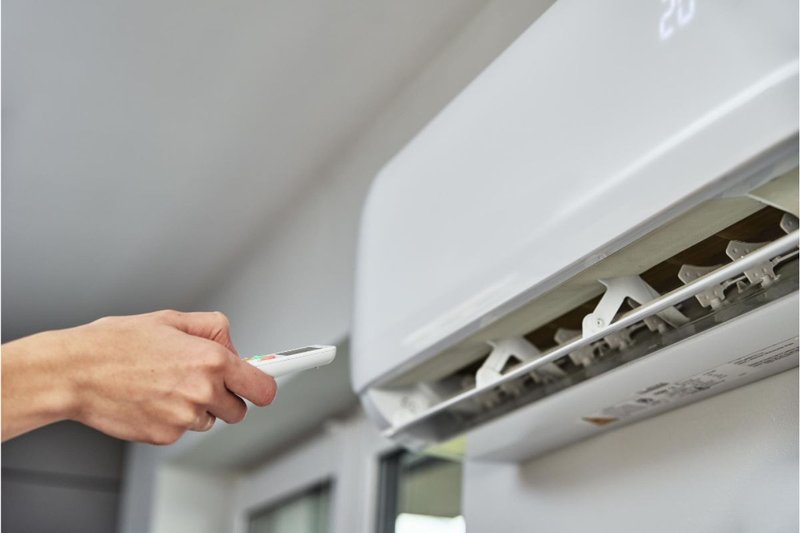
Now, let’s break it down. The F2 error code generally indicates an issue with the temperature sensor in your GE air conditioner. Think of it like your body’s thermostat going on the fritz — if your internal temperature monitor wasn’t working right, you’d either be bundled up unnecessarily or sweating when you don’t need to be. Similarly, the air conditioner’s thermostat might be struggling to read the room’s temperature correctly, which could lead to your room not being cooled as intended. But is it safe to continue using your device in this state? Let’s explore further.
Understanding the F2 Error Code
So, what exactly is this F2 code all about? Picture this: your air conditioner has a tiny detective inside, constantly checking things are running smoothly. The temperature sensor is a crucial tool for this little detective, ensuring your room stays at the perfect level of chill. When this sensor is faulty or not working as it should, the detective sends out an F2 code as a clue to the homeowner that something needs attention.
This problem often isn’t as dire as a complete system failure, but it signals that the air conditioner’s ability to regulate the room temperature might be compromised. Imagine trying to bake a cake without knowing your oven’s exact temperature — you’d be guessing the whole time! With the F2 code, your air conditioner is essentially taking stabs in the dark at how to cool the room, which can lead to inefficiency and discomfort.
Here’s the deal: If you’re seeing an F2 code, it’s usually safe in the short term to continue using the air conditioner, provided that it’s still somewhat cooling. However, you shouldn’t ignore it for too long. Running the unit with a faulty sensor could lead to increased energy use (and who wants a high electric bill?) and put added strain on other system components, potentially causing more significant issues down the line.
Potential Causes of the F2 Error Code
You might be wondering, “How did we get here?” Well, like many home appliance issues, multiple factors could have led to this F2 error popping up. First off, it might just be a case of a loose or faulty connection. Just like a loose light bulb doesn’t work until it’s properly tightened, your air conditioner’s sensor might not be working due to a simple connection issue.
Alternatively, the sensor itself could be defective. Over time, components like these can wear out; it’s just the nature of technology. Imagine an old pair of shoes — they might look okay from the outside but are worn thin where it counts. Similarly, a worn sensor might not visibly show damage but can still cause operational hiccups.
Another possible cause is environmental factors. Excessive dust or debris can clog and obstruct the sensor’s ability to do its job, much like how a clogged filter in a vacuum cleaner reduces its suction power. Making sure your air conditioner is clean and well-maintained goes a long way in preventing such issues.
Next Steps and Suggestions
Now that you have an idea of why the F2 code might be flashing, you’re probably wondering what you should do next. First, you should consult your air conditioner’s manual for any specific guidance regarding the F2 error. Manufacturers often provide troubleshooting steps that are tailored to their appliances.
If you’re comfortable with a screwdriver, you might want to try checking the sensor connections yourself. However, if you’re not handy with tools or if the problem persists, calling in a professional technician is a wise choice. Professionals have the experience and tools to diagnose and fix the issue, ensuring your air conditioner returns to optimal performance.
To help prevent these issues in the future, regular maintenance is key. Just like you wouldn’t skip oil changes for your car, don’t forget to schedule routine check-ups for your air conditioner. Keeping it clean and checking connection points regularly can also help you avoid seeing that pesky F2 code in the future.
In the grand scheme of appliance mishaps, an F2 error on a GE air conditioner isn’t the worst case scenario. However, it acts as an early warning that shouldn’t be ignored. Think of it as your air conditioner’s polite way of saying, “Hey, I need a little help here.” Understanding what the error means and acting promptly can save you from higher costs and headaches later on.
By addressing the issue, whether by yourself or with professional assistance, and maintaining your unit properly, you can ensure your air conditioner keeps providing that much-needed cool breeze during the hot months. Remember, taking care of the small issues today helps prevent bigger problems tomorrow!